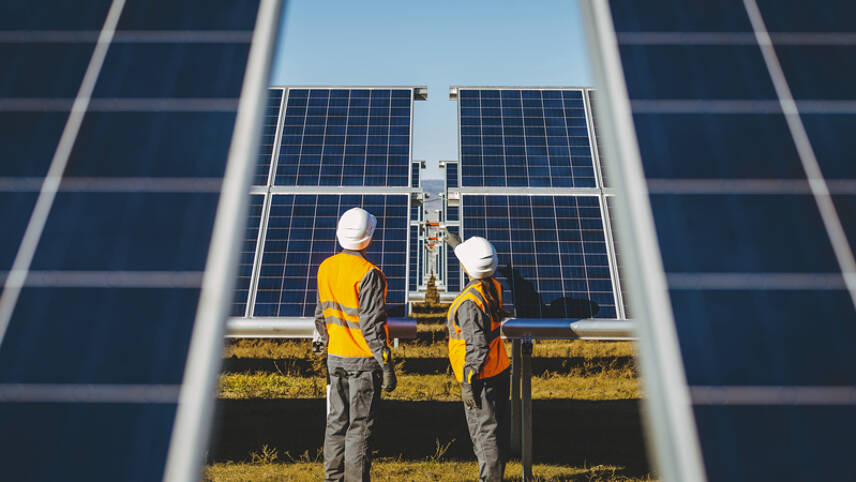Register for free and continue reading
Join our growing army of changemakers and get unlimited access to our premium content

The authors point to falling solar, wind and battery costs
That is the headline finding of a new study published in energy journal Joule this week. Conducted by researchers at Oxford University, the study assesses the likely costs and benefits of continuing with a largely fossil-based energy system globally, as currently exists. It then compares these with a scenario in which a “rapid” transition is conducted, with wind, solar, batteries and green hydrogen production playing the biggest roles.
It concludes that savings of at least $12trn are likely in the rapid transition scenario by mid-century. This is largely due to the fact that renewable energy technology prices, such as those for wind turbines and solar panels, have already fallen considerably and are likely to keep doing so in the 2030s and 2040s.
It is noted that nuclear has a role to play, but that costs have “consistently” increased globally over the past 50 years – hence why other technologies are emphasised.
The study states: “The prices of fossil fuels such as coal, oil, and gas are volatile, but after adjusting for inflation, prices now are very similar to what they were 140 years ago, and there is no obvious long-range trend. In contrast, for several decades the costs of solar photovoltaics (PV), wind, and batteries have dropped (roughly) exponentially at a rate near 10% per year. The cost of solar PV has decreased by more than three orders of magnitude since its first commercial use in 1958.”
There are also savings to be had from ending fossil fuel subsidies. The G20 governments spent $584bn each year between 2017 and 2019 on fossil fuel subsidies, it has previously been estimated.
Additionally, energy efficiency can bring savings, as can flexible energy systems. Flexible approaches can minimise costs from physical energy infrastructure improvements and reduce the risk of governments having to import power at short-notice, at an increased price.
The numbers listed in the report are likely to be a conservative estimate, the authors state, as climate-related damages from physical risk are not accounted for. Co-benefits, such as the socio-economic benefits of bringing renewables to rural communities in developing nations, are also not accounted for. As such, their conclusion is that a net-zero energy system is globally possible by 2050 – and also more profitable than alternatives.
“Past models predicting high costs for transitioning to zero carbon energy have deterred companies from investing, and made governments nervous about setting policies that will accelerate the energy transition and cut reliance on fossil fuels,” said lead author Dr Rupert Way of the Oxford Smith School of Enterprise and the Environment.
“But clean energy costs have fallen sharply over the last decade, much faster than those models expected. Our latest research shows that scaling up key green technologies will continue to drive their costs down, and the faster we go, the more we will save.”
UK focus
The UK Government’s climate advisory body, the Climate Change Committee (CCC), has already amended its forecasts for the cost of the transition to net-zero by 2050. It initially predicted costs of 1-2% of GDP, and has since revised this down to 0.5%-1% of GDP, largely due to falling clean energy technology costs and high gas prices.
But the Oxford report’s authors state that some in the UK still push the idea that clean energy is more expensive, with this narrative proving even more popular in some other geographies.
The publication of the study comes in the same week that Triodos Bank and Thrive Renewables tracked an uptick in interest in clean energy from British retail investors. Their poll of 1,000 investors found that 57% have recently increased investment in renewables or are planning to do in the near future.


Please login or Register to leave a comment.